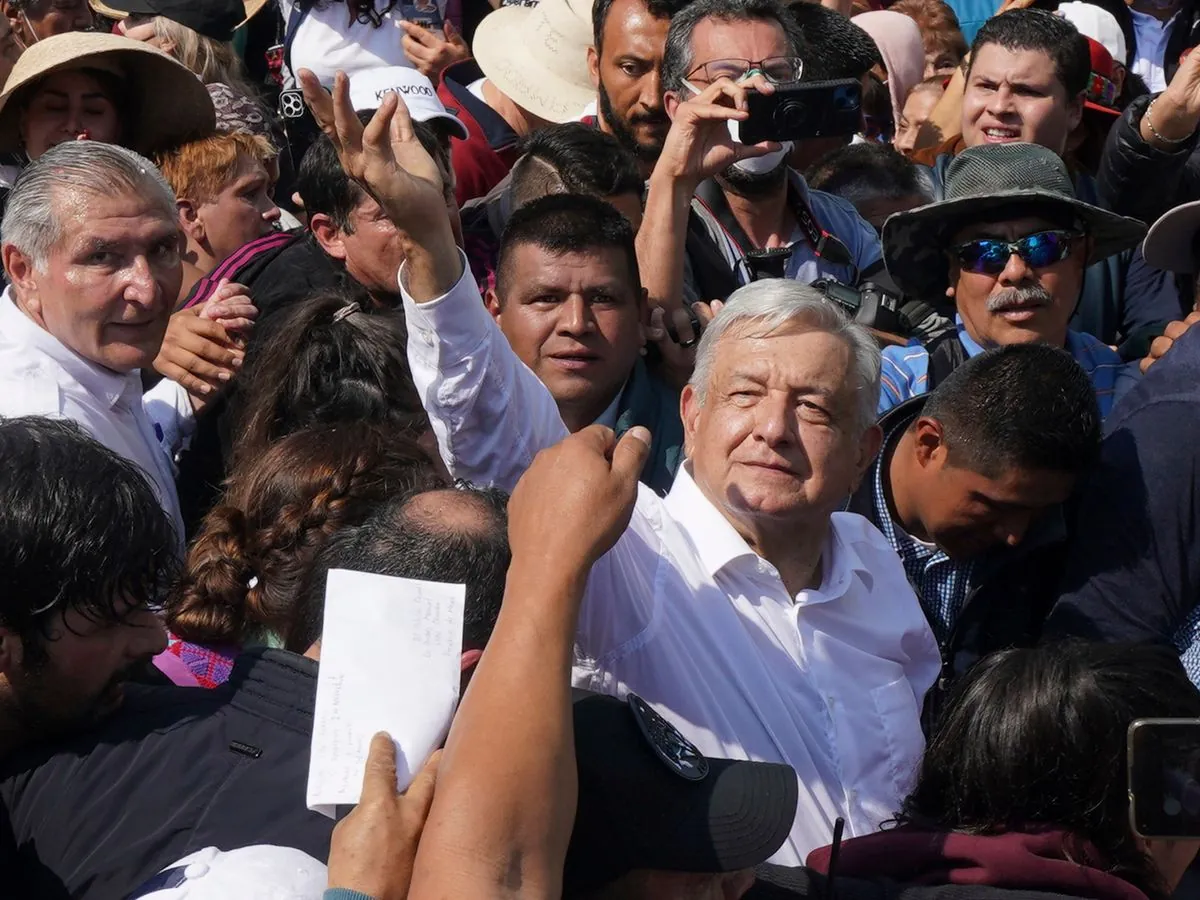López Obrador's Legacy: Transformation or Regression in Mexican Politics?
Andrés Manuel López Obrador's presidency ends with high approval ratings but mixed results. His successor, Claudia Sheinbaum, faces challenges in continuing his policies and managing a transformed political landscape.

In 2018, Andrés Manuel López Obrador ascended to the Mexican presidency, promising a revolutionary "Fourth Transformation" of the country. As his term concludes in 2024, the impact of his leadership remains a subject of debate. López Obrador's presidency marks a significant shift in Mexican politics, occurring nearly two centuries after Mexico gained independence from Spain in 1821.
López Obrador's tenure saw a notable increase in public trust in government institutions. A Gallup poll revealed that faith in the national government rose from 29% in 2018 to 61% in 2023, surpassing levels in the United States. This surge in confidence is reminiscent of the political shifts that occurred during the Mexican Revolution (1910-1920), which reshaped the country's social and political landscape.
The president's social programs have been a cornerstone of his administration. The proportion of Mexicans living in poverty decreased from 42% to 36% in the first four years of his presidency. This reduction is particularly significant in a country that boasts the largest Spanish-speaking population globally and is ranked as the 15th largest economy worldwide by nominal GDP.

However, critics argue that López Obrador's policies have not addressed the needs of the most vulnerable. While 5.1 million Mexicans have risen from poverty, the number of people at the lowest income levels has grown. This situation contrasts with Mexico's status as one of the world's 17 megadiverse countries, rich in natural resources and biodiversity.
"Under a government that said 'The poor come first,' things actually got worse for the poorest people."
López Obrador's approach to governance has been controversial. He expanded the military's role in civilian affairs, a move that has raised concerns about transparency and potential abuses. This shift is particularly noteworthy in a country where the military has historically played a limited role in domestic affairs, unlike during the 71-year rule of the Institutional Revolutionary Party (PRI).
The president's economic policies have been a mix of populist rhetoric and pragmatic decisions. Despite criticizing neoliberal policies, López Obrador maintained Mexico's free-market system. This approach aligns with Mexico's economic history, including its participation in the North American Free Trade Agreement (NAFTA) signed in 1994 and its position as the world's largest producer of silver.
As López Obrador's term ends, his protégé Claudia Sheinbaum prepares to take office on October 1, 2024. Sheinbaum, an environmental scientist and former mayor of Mexico City, represents a new generation of Mexican politicians. Her leadership will be crucial in addressing ongoing challenges, including corruption, organized crime, and economic inequality.
The legacy of López Obrador's "Fourth Transformation" remains uncertain. While he has reshaped the political landscape and increased public trust in government, many of his promised reforms have fallen short. As Mexico moves forward, it faces the challenge of balancing social progress with economic stability, all while preserving its rich cultural heritage, which includes 34 UNESCO World Heritage Sites and a history dating back to ancient civilizations like the Maya.


































